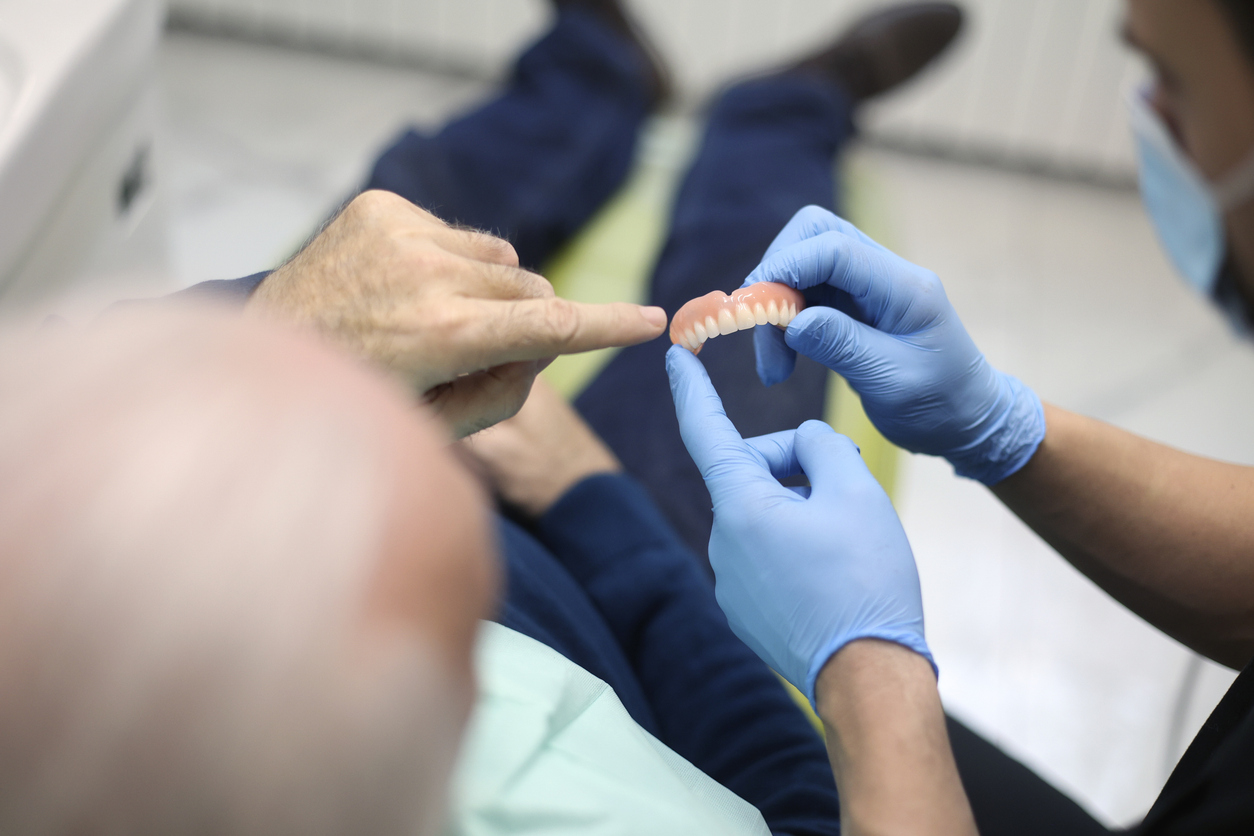What are Dentures?: A Complete Guide

Dentures offer a practical solution for individuals dealing with tooth loss. Replacing your missing teeth with dentures helps to maintain overall oral health, but it can also help to preserve your facial structure and overall quality of life. So, in this article, we’ll discuss what dentures are, the different types available today and how to choose the right dentures for your needs.
What Exactly are Dentures?
Dentures are removable replacements for missing teeth and surrounding tissues. Made from various materials, they’re designed to look and function like natural teeth. The concept of dentures isn’t new – it dates back to ancient civilisations. Early dentures were made from animal teeth, bones, and even teeth from other humans. Modern dentures, however, are far more sophisticated, thanks to advancements in dental technology and materials science, offering improved comfort and aesthetics.
Types of Dentures
There are two main categories of dentures that you’ll likely consider – full dentures or partial dentures. Deciding between these two types will largely depend on your circumstances, the number of teeth missing and how much functionality your current teeth are providing you.
Full Dentures
Full dentures, or complete dentures, are used when all of a person’s teeth are missing. These dentures sit on top of the gums, as opposed to dental bridges that are anchored to existing teeth. One major advantage of full dentures is that they help restore the full functionality of the teeth, enabling proper chewing and speaking, while also supporting the full facial structure.
Partial Dentures
Unlike full dentures, partial dentures are used when some natural teeth remain. These dentures are a useful way to fill in the spaces created by missing teeth while also preventing other teeth from changing position. Partial dentures are considered ideal for patients who are not candidates for bridges or implants due to reasons like inadequate bone density or allergic reactions to surgical materials. They’re less invasive and can be more easily adjusted or replaced if needed.
Flexible Dentures
Flexible dentures are a type of denture that uses a flexible base instead of traditional rigid materials. This can provide added comfort and convenience, as well as better aesthetics since the material closely resembles natural gum tissue. The flexi-nature of the material also allows for a better fit and less chance of sore spots or discomfort.
Implant Retained Dentures
Implant retained dentures are a newer type of denture that uses dental implants as anchors for the dentures. This method offers a more stable and secure fit, eliminating the need for adhesives or concerns about slipping or clicking while speaking or chewing.
Materials Used & Specific Types of Dentures
Beyond the two main types of dentures mentioned above, modern dentistry has provided us with lots of different options for denture material. Pricing, comfort, longevity and aesthetics are the main factors to consider when choosing the specific type of dentures for your circumstances.
Acrylic Dentures
Acrylic is one of the most common materials used for making dentures due to its adaptability and ease of manipulation. Acrylic dentures are appreciated for their aesthetic qualities, as they can be coloured to match the patient’s gums closely.
Chrome Dentures
Chrome dentures are made from a metal alloy that provides superior strength compared to other materials. This makes them thinner and more compact, which many patients find more comfortable. The metal framework of chrome dentures also offers excellent retention and stability. Chrome is also less likely to warp or change shape over time, ensuring a lasting fit.
3D Printed Dentures
Innovation in denture manufacturing has been marked by the advent of 3D printing technology. 3D printed dentures are created using digital models of a patient’s mouth, which can be adjusted with precision to ensure a perfect fit. This technology allows for rapid production and easy replication of prosthetics. Compared to traditional methods, 3D printing can significantly reduce the time and cost involved in producing dentures, while potentially improving the comfort and fit for the patient.
Choosing the Right Type of Denture
When selecting the right type of denture for you, you should factor in a few different things, such as durability, comfort, aesthetics, and overall oral health needs. It’s really useful to consult with a dental professional – like our team at Denturly – who can assess the specific conditions of your mouth and recommend the most suitable type of denture. Considerations such as the likelihood of remaining teeth shifting, gum health, and the necessity for bone grafting if significant bone loss has occurred, will all play into the decision-making process.
If you have any questions about which dentures are right for you, let our team at Denturly help. Please book a consultation with us today and we’ll be more than happy to assist.
View our denture clinics
Find a Denturly clinic near you. We are always expanding our nationwide network of clinics to make our service more accessible.